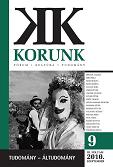Miért fogékony az elme a pszeudotudományos magyarázatokra?
Why Is the Mind Receptive to Pseudo-Scientific Explanations?
Author(s): Imre PéntekSubject(s): Psychology
Published by: Korunk Baráti Társaság
Keywords: science; pseudosciences; cognitive psychology; argumentative theory of reasoning
Summary/Abstract: Science has radically changed human civilization. Paradoxically, while scientific thinking is accessible through the educational system to an ever increasing number of learners, pseudosciences, superstitions and irrational beliefs are becoming more and more popular. The author argues that along the social factors cognitive processes, shaped by evolutionary forces, contribute to the receptiveness of the mind to pseudoscientific explanations. Several studies on probabilistic reasoning, decision making and hypothesis testing shows that in a wide range of abstract situations people’s reasoning leads to biased decisions and irrational conclusions. However, according to Mercier and Sperber, reasoning is not designed to enhance decision making in abstract situations; it is shaped by evolutionary pressures to produce and evaluate arguments in a communicative context. The paper reanalyzes the experimental evidences in light of the argumentative theory of reasoning, and explores the implications of the argumentative theory for the popularity of pseudosciences.
Journal: Korunk
- Issue Year: 2010
- Issue No: 09
- Page Range: 16-19
- Page Count: 4
- Language: Hungarian

